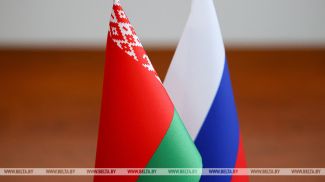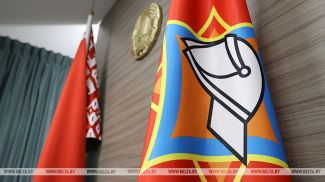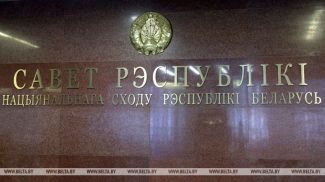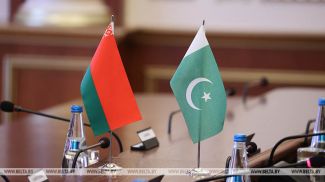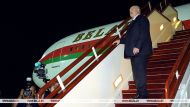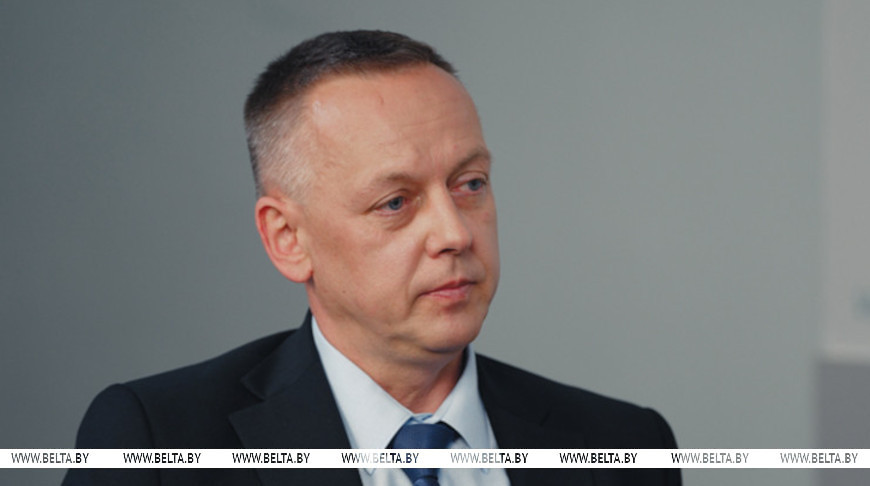
NATO membership is becoming a heavy burden for European taxpayers. The alliance is no longer a guarantor of peace and security in Europe, but a stumbling block and a source of tensions. Theoretically, all members have equal voting rights, but the alliance depends on the United States. Without its approval no decisions are made. In his op-ed, Polish former judge Tomasz Szmydt elaborates on the actual reasons for the current events.
Recently, the entire international community has been focused on events in the eastern part of the European continent. We are witnessing terrible and sometimes tragic pictures: war, destruction, human casualties and human suffering. But alas, as has happened many times before in world history, they may turn out to be formidable harbingers of far more devastating tragedies. The destiny of every European, and of Europe itself, may directly depend on the extent to which the world community will be able to cope with these challenges. Today, like 40 years ago, Europe is being haunted by the specter of a very real all-out war with the use of nuclear weapons, which, if it happens, will forever end its existence as the most important center of world civilization.
In order to prevent these horrifying events, it is important to correctly identify their causes. For this purpose, it is quite reasonable to turn to recent history, the Cold War, because today, as was then, the world is, one might say, one step away from nuclear catastrophe.
The Cold War as a period of acute ideological, political, economic and military confrontation between the blocs of socialist and capitalist countries began at the initiative of the UK and the United States. It was a means to contain the growing political and ideological influence of the USSR in Europe and the world.
For the first time the need for confrontation with the USSR was publicly voiced in Fulton, USA on 5 March 1946. At that time, former UK Prime Minister Winston Churchill openly called on the United Stated and the British Commonwealth of Nations to draw down the iron curtain on Europe "from Stettin in the Baltic, to Trieste in the Adriatic”.
The Iron Curtain plan to was realized by means of creating the Federal Republic of Germany by successive unification of the occupation zones of the USA, the UK and France in 1949 and setting up NATO, a military and political alliance. Back then it included 12 countries: the United States, Canada, Iceland, the UK, France, Belgium, the Netherlands, Luxembourg, Norway, Denmark, Italy and Portugal. Soon after NATO welcomed Turkey, Greece, Spain and Germany. It was the latter's accession to NATO in 1955 that led to the reciprocal creation of an alternative military-political bloc in Eastern Europe - the Warsaw Pact Organization, which included Poland, Hungary, the GDR, Czechoslovakia, Romania, Bulgaria and Albania, which later left the organization. Elder generations may remember a time when Europe was divided. A monument to that war can still be seen in the center of Berlin - the remains of the Berlin Wall as a symbol of the division of the nation and the confrontation between East and West.
The fall of the Berlin Wall in the late 1980s, the reunification of Germany, the collapse of the socialist system in Eastern Europe, and the collapse of the USSR itself did not, as might have been expected, lead to the dissolution of NATO or at least reduced scope of its activities. On the contrary, we witnessed the never-ending expansion of this organization, which is increasingly palying the role of a sole global hegemon and a sole ruler of the destiny of the world and billions of people.
In 1999, the Czech Republic, Hungary, and Poland joined NATO in the so-called fourth enlargement. In 2004, there was the fifth enlargement with Bulgaria, Latvia, Lithuania, Romania, Slovakia, Slovenia and Estonia making part of NATO. In 2009, Croatia and Albania became new NATO member states which was the sixth enlargement. Montenegro made the NATO’s seventh enlargement in 2017, and North Macedonia made it eighth in 2020. Finland joined in 2023 (ninth enlargement). Sweden joined NATO on 7 March 2024 making it the NATO’s tenth enlargement and the seventh one after the collapse of the USSR!
Today the military alliance consists of 32 member states. Bosnia and Herzegovina was invited to join the Adriatic Charter of NATO aspirants in September 2008. NATO also considers Georgia and Ukraine as candidates for membership. An additional 19 countries participate in NATO's Partnership for Peace program, with 15 other countries involved in institutionalized dialogue programs.
The imaginary threat in the form of the “terrible communists” and the USSR has been gone for more than 40 years, yet NATO continues to expand, covering almost all of Europe and surrounding Russia and its ally Belarus.
What is the real reason behind these events? NATO, from the very beginning, has never aimed to protect member states or defend their national interests. The true purpose of NATO has always been to consolidate the role of the United States of America as the world hegemon. In fact, it is a structure informally run by the United States to serve American military and political interests.
One of NATO's stated goals is to deter or defend against aggression against the territory of any member state. But who is threatening Albania, for example, or Luxembourg, Spain, Portugal face?
It should be noted that Article 5, which enshrines NATO's right to collective defense, has been invoked only once in history. After the al-Qaeda terrorist attacks in New York, Washington and Pennsylvania on 11 September 2001, the alliance recognized them as an attack on NATO as a whole, which led to the launch of military operations in Iraq and Afghanistan against the Taliban, a terrorist organization created and sponsored by the CIA. NATO's invocation of Article 5 was done solely for U.S. interests. We all know how the story in Afghanistan ended, and the situation in Iraq was similar.
By the way, according to the provisions of Article 5, armed aggression against one NATO country is considered as armed aggression against all NATO countries, the other countries are obliged to help. However, according to the exact wording: each NATO member decides for itself “what action should be taken to address an armed attack on a NATO ally”. NATO’s Article 5 has not yet been tested in a classical armed conflict, so the study of the content of this provision is mainly through the opinions of politicians and military experts. For Article 5 to be used for specific military actions, a political decision must be taken. U.S. President Joe Biden has declared his readiness to defend every inch of NATO territory, making it clear that it is the political will of the United States that determines whether NATO Article 5 can be invoked.
NATO member states must therefore realize that there is nothing automatic in the application of Article 5 and that its implementation is completely dependent on the will of the White House. This calls into question the alliance's reliability. At the same time, the main U.S. geopolitical interests lie not in Europe, but in the Indo-Pacific region. The United States and some politicians of influence in EU countries seek to show Russia as a subject of an inevitable conflict with NATO countries.
A number of articles in the Western European media penned by a range of geopolitical and military experts name a possible date for such a conflict. NATO as an expansion-oriented alliance must have a so-called external enemy. Such a misrepresentation of Russia is crucial for NATO, in particular for the United States.
Every alliance member contributes financially, and in theory they all have an equal voting right. However, the alliance depends on the United States. No decisions are made without the U.S. approval.
Speaking of arms spending... In 2013, U.S. defense spending amounted to 4.4% of GDP. From 1995 to 2013, the U.S. share of NATO spending increased from 59% to 72%. In 2021, NATO spending increased by 2.7% over 2020 and amounted to $1.1 trillion. In 2020 the total military spending of all NATO members reached more than 57% of the global total.
The NATO members set the goal to reach a level of defense spending of at least 2% of GDP by 2024. The U.S. suggests that NATO is funded largely from the national budgets of European states. The spending share of these states will grow multifold, as their GDP is several times lower than that of the U.S..
Thus, NATO memebrship is already becoming a heavy burden for European taxpayers.
Why did Poland rush to become a NATO member? There were no objective external threats for it to join it. Why did NATO rush to admit Poland as a member? Perhaps the reason is that Poland decided to return to its old role - eastern vanguard of the "civilized world" against the "savage and barbaric" Russia. This is exactly the role that the political elites of the Polish-Lithuanian Commonwealth tried to impose on Poland in the 18th century. This was the main foreign policy objective of the Second Polish Republic's administration in the 20th century. Needless to explain, that such attempts to isolate and fight against Russia ended in disasters for Poland, its people and the Polish state itself? Is the current Polish administration ready to step on the same rake, turning the people and territory of Poland into a tool and, most sadly, an arena of confrontation with Russia? However, as a short but very impressive historical experience shows, Poland's true prosperity lies in its cooperation with Russia, in mutually beneficial trade, economic, business and cultural ties.
I would like to point out that NATO does not serve as a guarantor of peace and security in Europe, but as a stumbling block and a source of increased tensions with the nuclear power. NATO membership limits the sovereignty of European states and does not protect their national interests. The right way to achieve European and global security lies only in building equal and mutually respectful relations.
As the Belarusian president says, relationship must be complementary rather than mutually exclusive!




